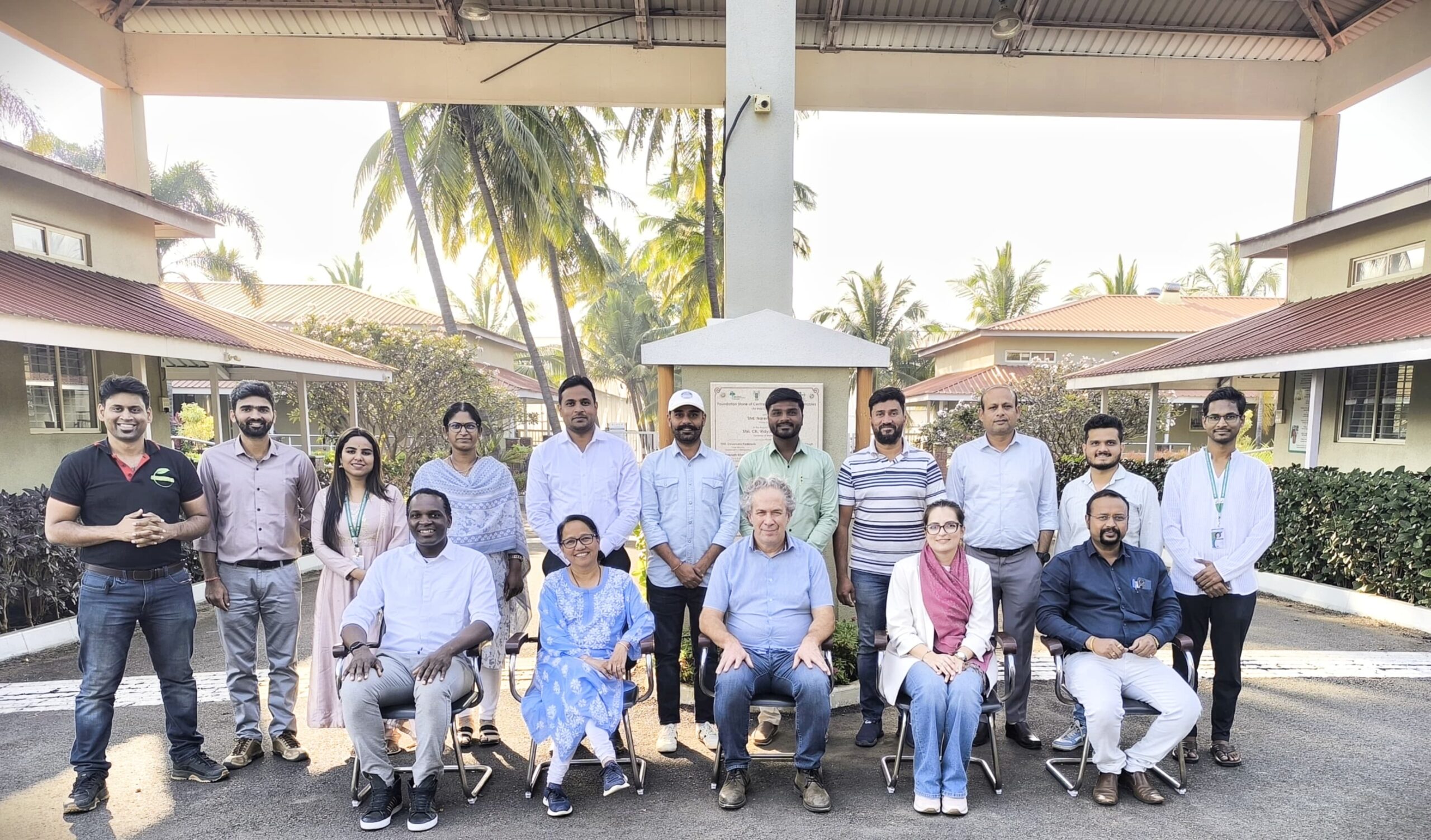This week, the first Horticulture Entrepreneurship Training Program took place, in Baramati, India. This ready-to-use training curriculum was development in assignment by HortiRoad2India, and brought together India’s next generation of agri-entrepreneurs to learn how to build sustainable horticultural businesses. The program is guided by Dutch expertise from Van Hall Larenstein University of Applied Sciences and Larive International.
With this strong first test, India now has access to a unique, first-of-its-kind CEA curriculum that education centres and universities across the country can adopt or request to strengthen their own courses. Over five intensive days, participants complete a comprehensive curriculum designed to equip them with the skills and knowledge needed to succeed in horticulture entrepreneurship.
The first training was hosted at the Centre of Excellence (CoE) and KVK Baramati’s state-of-the-art facilities, offering the perfect environment for both theoretical learning and hands-on application. A heartfelt thanks to Daniel Magwegwe, Heinz Evers, Anna Flavia de Souza Silva and Ingrid de Vries from Van Hall Larenstein University for leading this impactful program, and to Yashwant Jagdale from Centre of Excellence and KVK Baramati for providing their world-class facilities and support throughout the training.
What skills do the participants learn?
The program covers a wide range of topics aimed at developing future leaders in horticulture entrepreneurship:
- Environmental analysis and market research to identify risks and opportunities in high-tech horticulture
- Business strategy and value chain mapping for data-driven decision-making
- Sustainability practices and certifications such as IndiaGAP and Global G.A.P.
- Operational planning, including efficient production, logistics, and post-harvest management
- Financial management and risk mitigation strategies for sustainable growth
A key highlight is the emphasis on collaboration. Participants work in cross-disciplinary teams, creating an environment where farmers, government officials, students, and entrepreneurs could exchange experiences and perspectives. This diversity sparks creativity and fosters innovative solutions for challenges in the horticulture sector.
The final pitch session allows participants to present their business ideas to a jury of industry experts, receiving valuable feedback to refine their strategies.
Scaling Impact: The Road Ahead
While this training is an impactful experience, its true value lies in its potential for scalable impact. Equipped with new skills and insights, participants are better positioned to drive innovation, improve efficiency, and contribute to India’s broader goals of sustainability and food security.
This program is not an isolated effort—it is part of a strategic blueprint developed by the Partners in Business (PIB) program to support sustainable horticulture projects in India. The blueprint focuses on both crop production (yield, diversity) and business performance (profitability, impact, income), ensuring a holistic approach to sector transformation.
This initiative reflects the vision of the PIB team, led by: (former) Agricultural Counsellor at the Netherlands Embassy – Michiel van Erkel, Netherlands Enterprise Agency (RVO) – Jolie Franke, Head Coordinator PIB HortiRoad2India & Director India at Dutch Greenhouse Delta – Desh Ramnath, PIB Liaison in India – Tarannum Kadarbhai, co-coordinators HortiRoad2India and project manager international trade at InnovationQuarter & Rotterdam Partners – Tiffany Meijer & previously Carine Eijkelkamp.
Their long-term strategy ensures that these efforts are embedded in a larger framework for sustainable horticulture development.
Testimonials participants
Looking Forward
The momentum from this week will continue to drive change. The knowledge shared and partnerships formed will lead to lasting improvements, with participants ready to implement new strategies in their businesses and communities. This program marks the beginning of a broader movement to modernize horticulture in India, as recently presented in sessions in Bangalore, New Delhi, and Chandigarh.
For future inquiries about this ready-to-use training curriculum or the PIB HortiRoad2India, please reach out to Desh Ramnath and Tiffany Meijer.
Want to know more & be involved in the follow-up?
Dutch horticultural companies can join us on 25 November at World Horti Center for a Round Table on Horti Business Opportunities in India. Greenhouse builders, suppliers, and sector professionals are warmly invited. Click here to sign up for this session.

